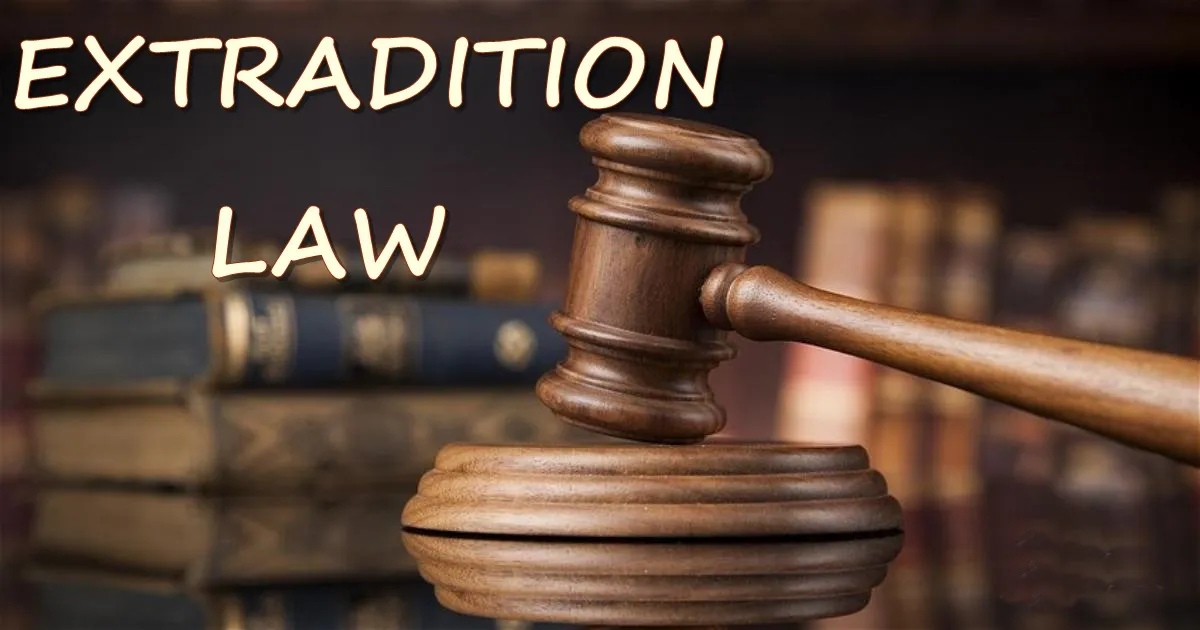Facing an extradition request in the UAE is frightening—and fast-moving. The right advocate can slow things down, examine the paperwork, and build a strategy rooted in UAE law and real-world diplomacy. Below is a plain-English guide from a UAE perspective, with practical steps you can take right now and best extradition lawyers.
What Is Extradition?
Extradition is when one country asks another to hand over a person to face trial or serve a sentence. Whether the UAE can (or will) surrender someone depends on the UAE federal law and, where applicable, a treaty between the UAE and the requesting state.
How Does Extradition Work Under UAE Law?

The framework is Federal Law No. 39 of 2006 on International Judicial Cooperation in Criminal Matters. In short:
- The offence usually must be punishable by at least one year’s imprisonment in both countries (dual criminality).
- Extradition will not be granted in set scenarios—e.g., if the person is a UAE citizen, for political offences (with defined exceptions), or where there’s a real risk of torture or inhuman treatment.
The Extradition Process in Dubai
- Arrest / Provisional arrest (urgent cases): the Public Prosecution can detain a person for up to 60 days pending receipt of the formal request; release on guarantees is possible.
- Public Prosecution stage: within 48 hours of arrest the person is presented to the prosecution; within 15 days the Attorney General refers the file to the competent court.
- Court hearing (closed session): the court hears prosecution and defence and issues a reasoned decision on eligibility. A person may also consent to extradition (a fast-track path).
- Appeal: both sides can appeal to the Court of Appeal within 30 days.
- Ministerial approval: even after the courts approve extradition, the decision is only enforced after the Minister’s approval (not the Cabinet).
Extradition Treaties of the UAE

The UAE relies on both bilateral treaties and regional/multilateral instruments. Examples:
- United Kingdom — Treaty signed 2006; in force since 2008. (GOV.UK, Legislation.gov.uk, UK Parliament)
- France — Extradition and judicial cooperation agreements (2007); recent cases confirm use. (WAM)
- India — Treaty signed 1999; in force 2000. (MEA India, Central Bureau of Investigation, Indian Kanoon)
- Australia — Extradition treaty signed 2007; in force 2011. (info.dfat.gov.au, Parliament of Australia)
- Denmark — Extradition agreement signed March 17, 2022; actively used (e.g., Sanjay Shah). (WAM, Reuters)
- Ireland — Treaty done at Abu Dhabi on Oct 21, 2024; applied in Ireland from May 18, 2025. (irishstatutebook.ie)
- Riyadh Arab Convention (1983) — regional mechanism among many Arab states. (Charles Russell Speechlys)
Read Also: Can Interpol Make Arrests? | Complete Guide to Red Notices (2026)
Countries without a UAE Extradition Treaty (selected)
- United States: as of August 20, 2025, no bilateral extradition treaty in force, though a Mutual Legal Assistance Treaty (MLAT) was signed in 2022 and transmitted to the U.S. Senate in 2025. Cooperation can still occur via diplomacy and multilateral channels. (U.S. Department of State, Congress.gov, State.gov)
- Germany: no bilateral extradition treaty; cooperation may occur case-by-case (and there’s been a 2019 declaration of intent). (auslieferungsverfahren.de, Schlun & Elseven)
Treaties evolve—our best extradition lawyers check the exact status and entry-into-force dates before advising.
Your Rights When Facing Extradition in the UAE

- To be informed of the request and evidence and to meet the Public Prosecution promptly.
- To legal representation and a court hearing; to appeal within 30 days.
Protection against extradition where there’s a real risk of torture, inhuman treatment, or a harsh penalty disproportionate to the offence.
Our Interpol lawyers in the UAE specialize in extradition cases country-by-country, have deep experience in transnational law and are well orientated with the specifics of law enforcement practices. We give comprehensive support; conduct legal analysis of your case, cover your rights in case of the risk of detention or repatriation and interact with original authorities. As a result, you will admit an effective strategy for resolving issues related to international search and potential extradition Dubai.
Defence Strategies That Work in UAE Courts
- Dual criminality gaps or time-bar under Article 7.
- Political-offence exception (as defined in Article 9) and human-rights objections.
- Specialty & assurances: insisting the requesting state limit charges to those granted and provide human-rights assurances.
Procedural defects: missing or inconsistent documents can sink a request.
What Is a Waiver of Extradition?
In UAE practice this is “summary extradition”: a voluntary, written consent to be surrendered without contesting the case—typically used where negotiated assurances make sense.
Also Read : Can You Be Extradited from Dubai? A Complete Legal Guide (2025)
How Expats in the UAE Can Reduce Extradition Risk (Legally)
- Get counsel early—ideally before arrest or travel alerts.
- Stabilise your status: valid residency, current address, and immediate response to police inquiries help.
- Screen for Interpol activity: a Red Notice is not an arrest warrant, but it can trigger detention pending extradition. (Interpol)
Also Read: How to Get Rid of an Arrest Warrant ?– Complete Legal Guide (2025)
Consider managed consent where appropriate (time-sensitive cases with strong assurances).
Read Also: Can You Fly If You Have a Warrant? Know the Risks
How Our Best Extradition Lawyers Can Help
- 24/7 response; urgent police-station and prosecution attendance.
- Treaty checks and diplomatic channels with foreign counsel.
- Red Notice assessments and challenges; bail applications with robust guarantees.
Contact Our Interpol law firm Now!
FAQ
1- Do all countries have extradition agreements with the UAE?
No. The UAE has many bilateral treaties (e.g., UK, France, India, Australia, Denmark, Ireland 2024/2025) and also uses regional instruments; some countries (e.g., the U.S., Germany) currently lack a bilateral extradition treaty with the UAE. (GOV.UK, WAM, MEA India, info.dfat.gov.au, irishstatutebook.ie, Congress.gov, auslieferungsverfahren.de)
2- What steps can I take if I am facing extradition?
Call a UAE extradition lawyer immediately, avoid international travel, gather identity and medical documents, and prepare to contest or manage the request at the Public Prosecution and Court stages (appeal window 30 days).
3- Can you be extradited from the UAE?
Yes—if the legal conditions in Federal Law 39/2006 are met and, after the court process, the Minister approves enforcement.
4- Is there an extradition treaty between the UAE and Germany?
No bilateral treaty as of today; cooperation may still occur case-by-case or via multilateral mechanisms. (auslieferungsverfahren.de, Schlun & Elseven).
5- Can you be extradited from Dubai to the USA?
There is no UAE–US extradition treaty in force as of Aug 20, 2025. However, an MLAT exists to share evidence, and ad-hoc cooperation is possible. Each request turns on its facts and UAE law. (U.S. Department of State, Congress.gov).
6- How do I know if I’m under threat of international extradition?
Red Notices and diffusion alerts, embassy outreach, or local police contact are common signals—your lawyer can check and respond. (Interpol).
7- What should I do if I’m threatened with international extradition?
Do not travel, get counsel, and prepare for a proactive court strategy (including human-rights objections or assurances).
8- Who decides whether I’m extradited?
The court rules on eligibility; the Minister must then approve enforcement.
9- How are extradition and Interpol Red Notices related?
A Red Notice is an alert, not an arrest warrant. It can lead to detention while formal extradition papers are sought. (Interpol).
10- Is bail possible in extradition cases?
Yes—release on guarantees can be granted, especially during provisional detention, but it’s discretionary and fact-specific.



